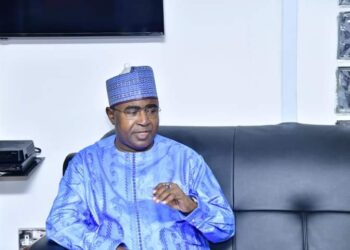ABUJA: Nigeria is facing a looming economic and public health crisis due to Antimicrobial Resistance (AMR), with potential losses estimated at $100 trillion globally if urgent measures are not implemented.
Dr. Sati Ngulukun, Director of Bacteriology, Parasitology, and Urology at the National Veterinary Research Institute, Plateau State, has warned that without strategic interventions, AMR could reduce Nigeria’s GDP by 5-7% and diminish livestock production by 11% by 2050.
He gave this hint in his presentation titled: “Engaging Policymakers-Strategies for Budget Inclusion” at a 5 Day Training and Capacity Building for journalists and SBOS on AMR Advocacy And Media Reporting organized by Fleming Fund Country Grant Antimicrobial Resistance Phase 11 in collaboration with Management Science for Health (MSH) with support from UKaid.
“The economic impact of AMR is staggering. If no action is taken, global deaths could rise to 10 million annually by 2050, with Nigeria accounting for 263,400 of those deaths each year,” Dr. Ngulukun stated.
He stressed that AMR is not just a health issue but a significant economic threat that could undermine decades of development progress.
Dr. Ngulukun highlighted that evidence-based advocacy is essential for influencing policy and budget allocations for AMR. “Presenting concrete data on AMR’s economic and health impact to policymakers is key. Successful interventions worldwide have shown that addressing AMR reduces health costs significantly,” he noted. The World Health Organization (WHO) reported that at least 700,000 people die globally each year due to AMR, including 33,000 in Europe and 23,000 in the U.S.
To combat AMR effectively, Dr. Ngulukun advocated for building coalitions and partnerships. “Media advocacy plays a critical role in highlighting AMR as a public health priority. We must unite stakeholders to push for AMR’s inclusion in national health agendas,” he emphasized.
Dr. Ngulukun also called for direct engagement with legislators. “Developing clear policy briefs that summarize AMR’s socio-economic burden and participating in health budget discussions are essential strategies. Advocacy meetings with key government officials can help integrate AMR into national health budgets,” he said.
In conclusion, Dr. Ngulukun stressed the importance of strategic engagement with policymakers and stakeholders. “Including AMR in the national budget line is crucial to implementing Nigeria’s AMR National Action Plan. Without proactive measures, the cost to Nigeria’s economy and public health will be devastating,” he warned.
With Nigeria facing a significant threat from AMR, experts agree that immediate action, robust policies, and sustainable investments are necessary to avert an impending health and economic catastrophe.




 5 days ago
15
5 days ago
15









 English (US) ·
English (US) ·